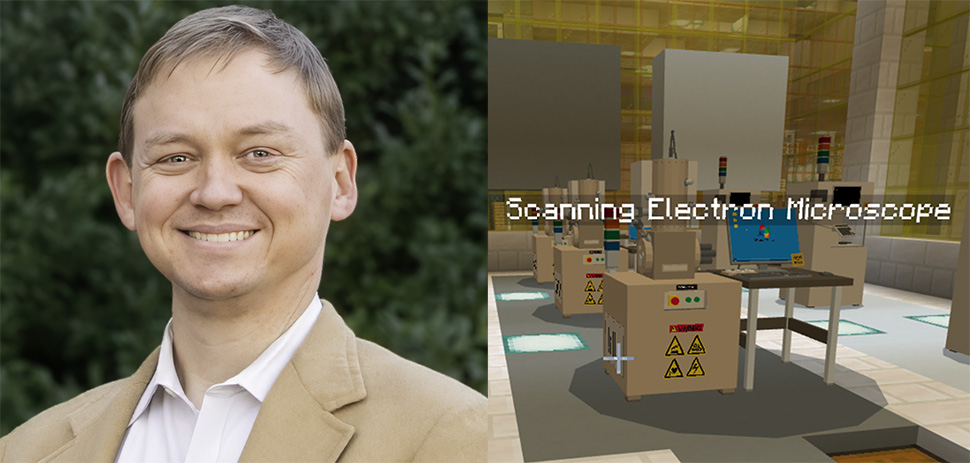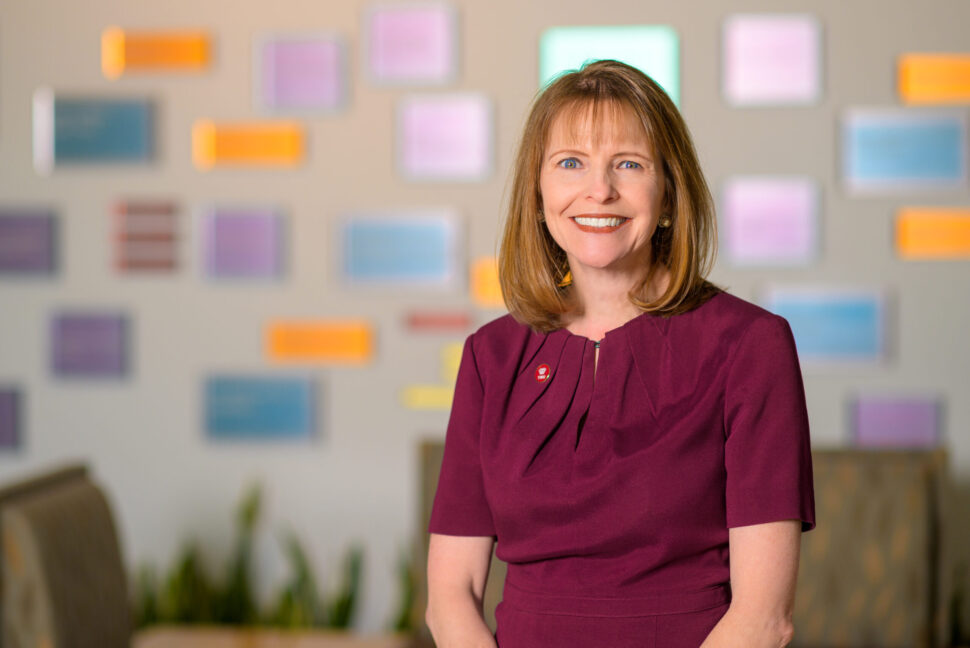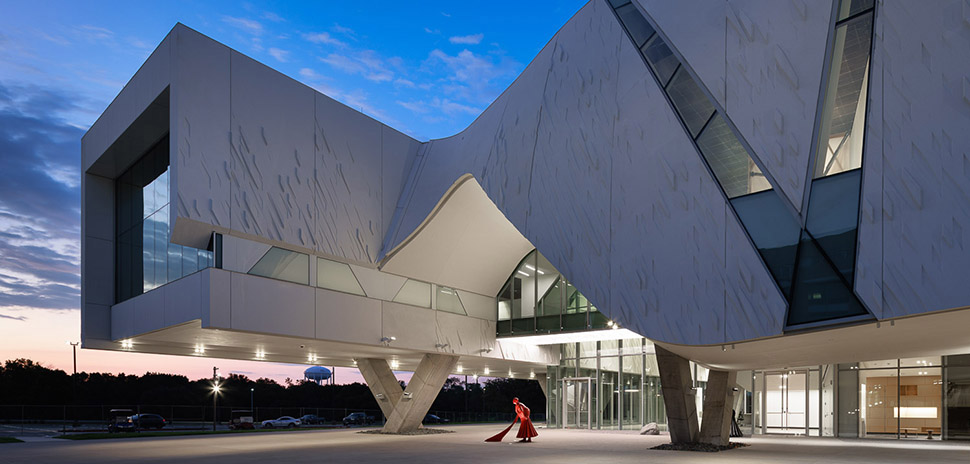![]() The University of Texas at Dallas (UT Dallas) is increasingly recognized as a leading hub of innovative research and technological advancement. Among its most significant contributors is Dr. Walter Voit, whose work has been pivotal in several transformative fields, including flexible electronics, neuroscience, 3D printing, and artificial intelligence (AI). From printed polymers in footwear, to softening spinal cord stimulators for pain management, to shape-changing cochlear implants for improved hearing, Voit Lab technologies enable the commercial foundation for pioneering companies large and small, public and private.
The University of Texas at Dallas (UT Dallas) is increasingly recognized as a leading hub of innovative research and technological advancement. Among its most significant contributors is Dr. Walter Voit, whose work has been pivotal in several transformative fields, including flexible electronics, neuroscience, 3D printing, and artificial intelligence (AI). From printed polymers in footwear, to softening spinal cord stimulators for pain management, to shape-changing cochlear implants for improved hearing, Voit Lab technologies enable the commercial foundation for pioneering companies large and small, public and private.
Since his journey began at UT Dallas as an undergraduate student in 2001, alongside colleague Dr. Eric Kildebeck, Voit has leveraged the university’s collaborative spirit to propel groundbreaking research that culminates in tangible products and startups accessible to the public. The impact of Voit’s endeavors illustrates how academic research can lead to commercialized innovations that enhance everyday life, bolstering UT Dallas’ reputation as a catalyst for technological advancement.
Nearly 100 UT Dallas alumni, students, research scientists, and various other employees comprise Dr. Voit’s established companies and academic lab. Their goal is to turn innovative ideas into innovative products that impact society. Dr. Voit and his team embody a distinctive approach to scientific research. Today, Voit’s mission is to “Deliver Personalized Learning” through interactive college courses delivered on simple edge devices like mobile phones, game consoles, tablets, and computers.
“We use AI to customize and pace content delivered to each student individually, no matter their skill level, to help students unlock their own potential without getting bored or frustrated—two common off-ramps in one-size-fits-all learning today,” Voit said.
To tackle this problem, which maps to one of the 14 National Academy of Engineering Grand Challenges to advance personalized learning, the team has programmed and delivered one of the world’s most comprehensive mods for Minecraft, called Polycraft World.
Launched in 2009, Minecraft has defied typical video game trends by continuously growing its user base since its initial release. While most games have struggled to maintain popularity for more than two years, Minecraft has consistently attracted new players and rekindled interest among longtime fans, now boasting over 170 million active monthly users.
Recognizing the game’s potential for engagement, researchers at UT Dallas saw an innovative opportunity for scientific outreach. Dr. Voit explains their approach: “Instead of waiting for students to come to us, we decided to go where all 100 million of them already are.”
The team developed a specialized Minecraft mod that embeds complex scientific concepts into gameplay, allowing users to learn about materials science, polymers, photolithography, alloys, and synthetic organic chemistry through interactive exploration.
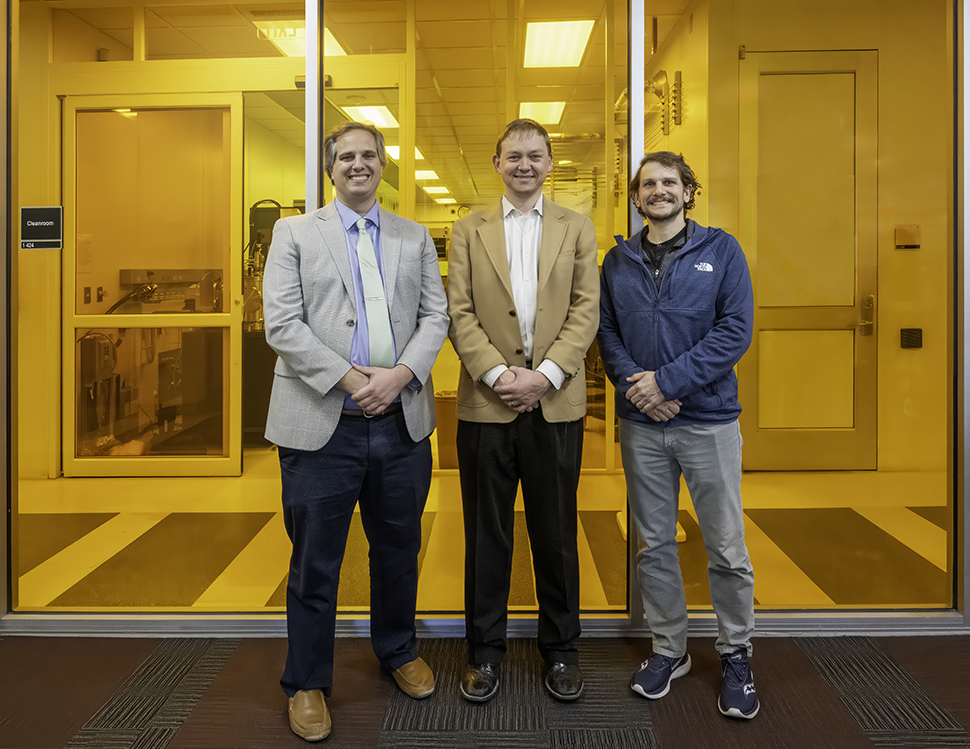
From left, Dr. Eric Kildebeck, Dr. Walter Voit, and Dr. Joey Steininger [Photo: UT Dallas]
Department of Defense leverages Minecraft as an AI training platform
The project caught the attention of the Department of Defense—namely the Defense Advanced Research Projects Agency (DARPA)—but not for direct human training. Instead, DARPA used Polycraft World as a sophisticated training ground for AI agents. More than five years of direct funding and many, many millions of Minecraft games later, Voit and Kildebeck helped improve AI agent adaptability and trustworthiness when challenged with novel problems in complex open worlds.
The core challenge addressed was AI brittleness—systems that perform well in controlled environments but fail when confronted with unexpected scenarios. “By training AI agents in Minecraft’s dynamic world and systematically changing rules and physics, we study how these systems respond to unpredictability and improve them for the future,” said Dr. Kildebeck.
This research is crucial for developing more robust autonomous systems that recognize when human intervention is necessary. While there remains considerable discussion surrounding Artificial General Intelligence (AGI), the researchers emphasize that a new paradigm for expert human oversight over trustworthy AI is key.
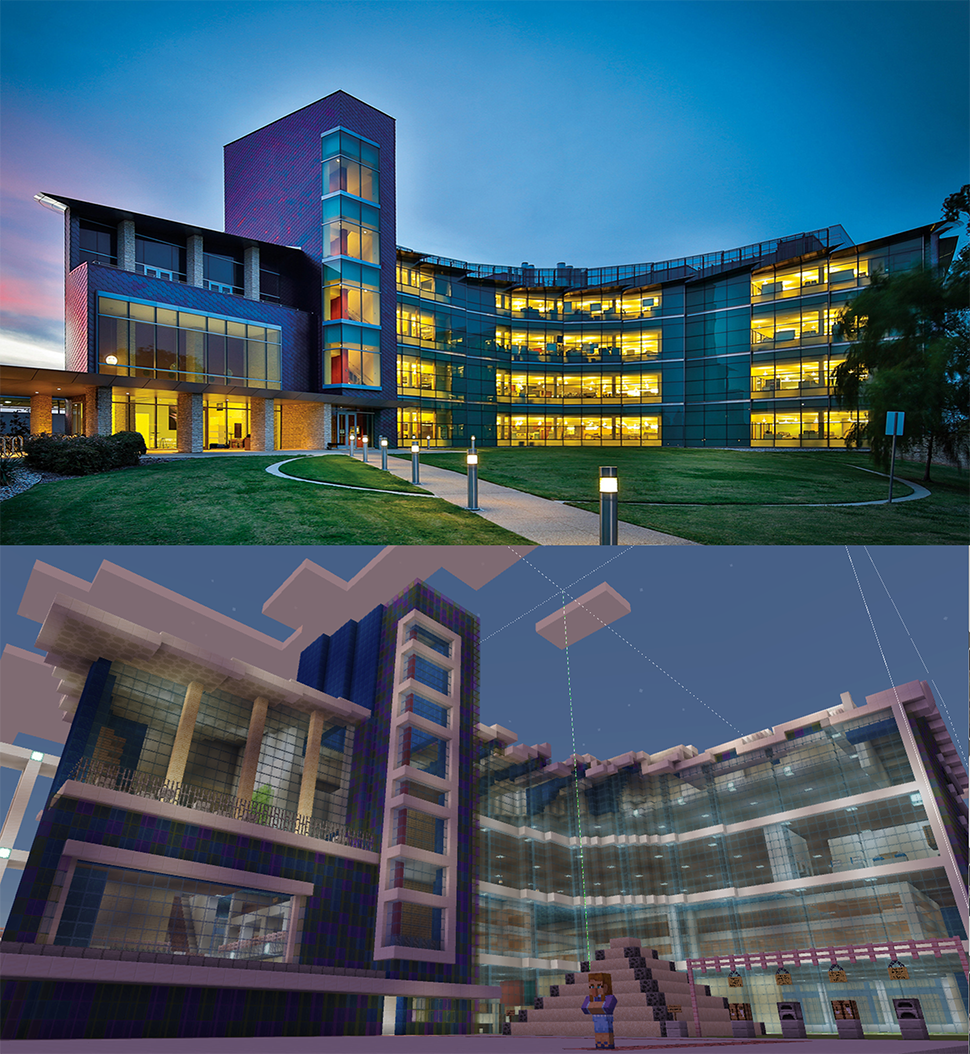
Polycraft World at UT Dallas’ Natural Sciences and Engineering Research Lab [Images: UT Dallas]
Transforming training for America’s workforce
Virtual learning environments, particularly those modeled after gaming platforms like Minecraft, could revolutionize education by transforming the learning process through immersive digital spaces. These environments simulate restricted or dangerous workplaces like semiconductor facilities, hospitals, and nuclear plants, providing practical training that’s currently expensive or inaccessible. This approach could help bridge the significant gap between traditional education and the real-world skills demanded by today’s workforce.
The team’s recent startup company, Pedegree Studios, has licensed these core technologies from UT Dallas to create a scalable digital pipeline for education and workforce development.
There are practical applications for younger students at home, too. Encouraging a child to study for a test might be a struggle, but if the work is a video game, they’ll likely be more excited to participate. Company co-founder and Puzzlemaster, Dr. Joey Steininger states, “It’s an engaging way to get people excited about reaching the next goal…in just one more turn.”
The possibilities of educating in this manner are vast and transformative in meeting the needs of students today. Through their latest endeavor, Drs. Voit, Kildebeck, and Steininger are building future learning experiences for students studying semiconductors, chemistry, battery manufacturing, biology, and the Medical College Admissions Test (MCAT) while being in an environment that’s fun, captivating, and visually stimulating. Imagine logging into a virtual 3D world and learning at your own pace while AI curates the challenges, teaching, and world around you for a personalized learning experience.
Current plans are to offer a college course with UT Dallas credit next year called “Experiential Medical Reasoning,” which will unpack MCAT questions and help train students in virtual hospitals and high-pressure situations to draw from and synthesize biology and chemistry knowledge in open 3D worlds.
“If you know a student interested in a future career in medicine,” said Dr. Kildebeck, MD/PhD, “this course in Experiential Medical Reasoning could give them a leg up in preparing for the MCAT and a future of serving patients well.”
The convergence of gaming, education, and artificial intelligence at UT Dallas demonstrates how innovative thinking can transform traditional approaches to learning and research. Through Polycraft World, Dr. Voit’s team has created a bridge between academic theory and practical application, making restricted environments accessible and complex concepts engaging. As this work continues to evolve, it enhances educational opportunities and advances our understanding of AI systems. It suggests a future where gaming platforms are powerful tools for educating America’s workforce.
For more information or collaboration opportunities, email us here or visit the website.
Story by Alyssa Galganov, Office of Research and Innovation, The University of Texas at Dallas.
Don’t miss what’s next. Subscribe to Dallas Innovates.
Track Dallas-Fort Worth’s business and innovation landscape with our curated news in your inbox Tuesday-Thursday.


